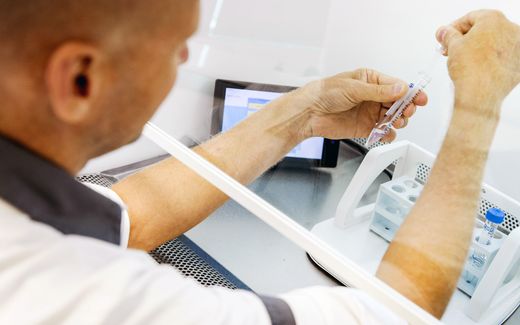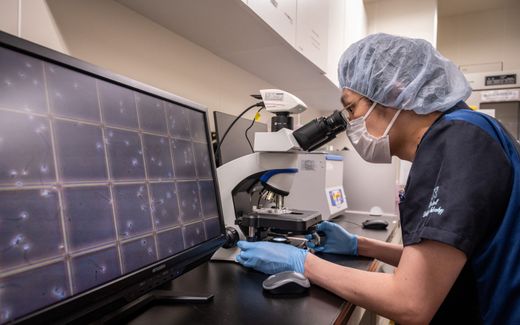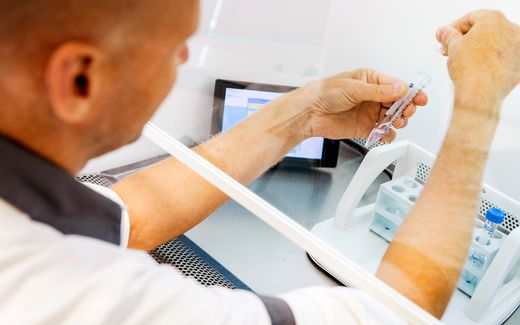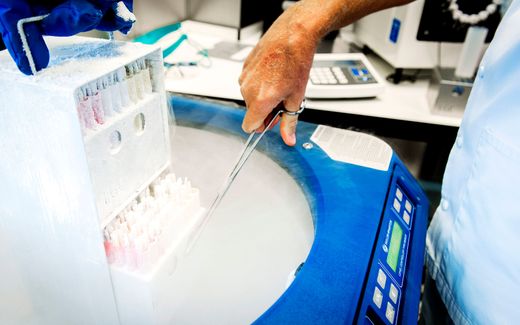Danish man sentenced for illegal sperm distribution
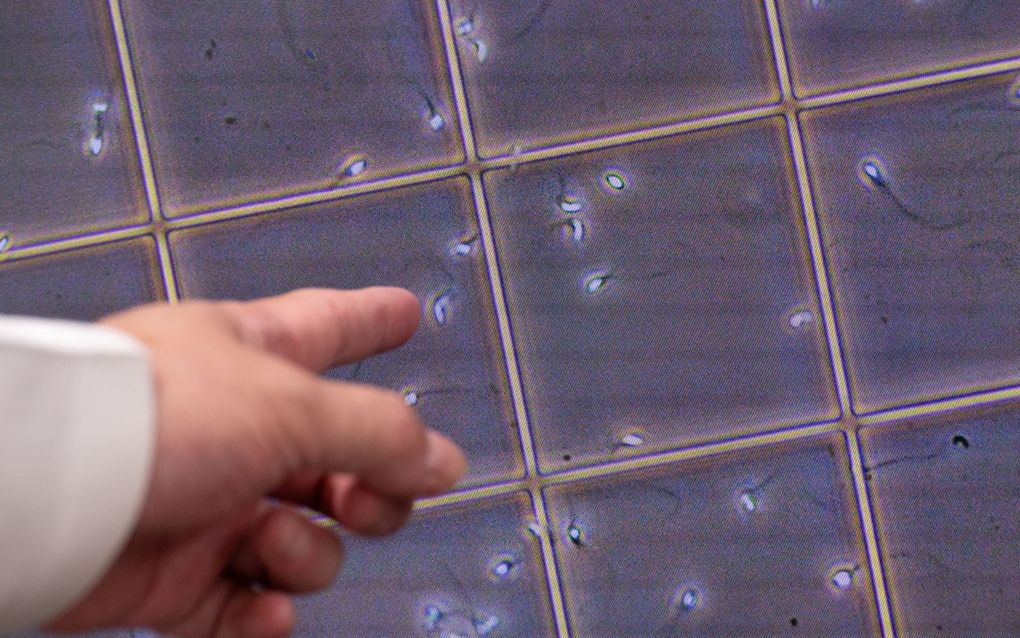
Photo AFP, Yuichi Yamazaki
Northern Europe
A Danish man has been found guilty of illegally distributing sperm to women. In a first-of-its-kind ruling, the judge may set a precedent for future cases. An expert is surprised by the verdict.
The Danish Henrik, who only goes by his first name in public, found out that it is not permitted to donate your sperm outside of the established fertility system. The 54-year-old has been found guilty of breaking the Tissue Act, which prohibits sperm distribution without permission from the authorities. A judge ruled on Monday that Henrik must pay a fine of DKK 25,000 or 3,361 euros. He must go to jail for fourteen days if he does not pay.
The court case received much media attention in Denmark since it is the first of its kind in the Scandinavian country. The ruling could therefore set a precedent in future similar cases. The case started when the Patient Safety Authority reported the man after he came forward in a TV 2 documentary and showed how he donated sperm.
Although Henrik admits to having passed on his sperm, he denies being guilty of anything illegal. "If I can pay the 25,000 kroner under protest, I will consider it. But I will not admit that I have done anything wrong. Then I have to take a prison sentence rather than a fine alternatively. At least you can see the protest in that," he says to the Danish Christian daily Kristeligt Dagblad. According to the Danish daily Ekstrabladet, Henrik donated his sperm to “make a difference”.
Earlier this year, he agreed to pay a fine of DKK 40,000 (5,378 euros) for breaking the tissue law. But when he realised that he was thereby pleading guilty to breaking the law, he regretted it. That is why the case was resumed in court yesterday.
Distribution
The judge, however, ruled that Henrik did break the law. According to the judge, the sperm donations had the character of distribution since Henrik has delivered sperm "to a not inconsiderable number of women with the aim that the women could achieve pregnancy, but not to allow himself to be registered as a father". This states the press release from the court at Herning.
Although Henrik had a friendly relationship with the women he had given his sperm to, the judgment emphasised that a practice like Henrik's impairs patient safety, which the Tissue Act is precisely there to protect.
The ruling is surprising, according to Kent Kristensen, associate professor of health law at the University of Southern Denmark. "The judgment from Herning is interesting because it puts an end to how the rules on artificial insemination have been interpreted in the Fertilisation Act so far. It is unclear whether the court has expressly dealt with the Fertilization Act, which does not criminalise simple donations between private citizens. This also means that it is difficult to say anything about the scope of the judgment handed down in the district court in Herning," he says to Kristeligt Dagblad.
According to Kristensen, the judgment may impact the people who use websites where citizens can get in touch with potential sperm donors and recipients of the sperm. This means that the use of such websites without permission from the authorities may, in future, be interpreted as being in breach of the Norwegian Tissue Act.
Offence
At the Central and West Jutland Police, special prosecutor Jens Severinsen says that it has not been central to the case whether other provisions have applied. On the other hand, he points to the fact that a breach of the Tissue Act has been found, which was what the accusation was about.
"We filed charges because we believe that an offence has been committed. The court has agreed with us, and we are satisfied with that," he says.
Related Articles


